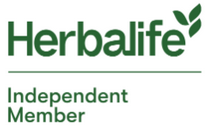Proper nutrition during the training process increases efficiency, reduces recovery time and helps athletes to achieve their goals.
Our recommendation regarding the training day:
Eating before exercise. Energy supply for muscles.
Purpose: to replenish glycogen stores in the muscles before training
Recommendations: eating before exercise should be divided into two stages:
A. For 3-4 hours before exercise should eat a relatively large amount of complex carbohydrates with a medium or low glycemic index. Also recommended protein products with low fat content. For example, this meal you can choose the pasta / brown rice / whole wheat bread, and as a source of protein - chicken or turkey / ham / tuna / yogurt / cheese / soy milk / beans (no fat).
If you exercise in the morning, dinner the day before should include carbohydrates.
B. For 15-30 minutes before training needed carbohydrate foods with a high glycemic index.
Objective: To obtain a small portion of carbohydrates relatively quickly to increase the level of glucose in the blood and give energy to the start of exercise. Examples of products: Herbalife H3O beverage, dried fruits, fruit, cereal with milk / yogurt or without a piece of bread with cheese, jam or honey.
NRG dietary supplement should be consumed right before the exercise/competition.
Benefits of caffeine: it stimulates the central nervous system, increases the release of adrenaline, increases heart rate, lowers peripheral sensitivity to pain and fatigue. Caffeine increases stamina, improves muscle and aerobic capacity of the organism. A side effect of caffeine while consuming in a large doses: long-term use is developing addictive. Discontinuation causes withdrawal symptoms of headache, fatigue, and mood swings. Not recommended for people with high blood pressure.
Nutrition during training.
Objective: to compensate for the loss of fluids through sweat, prevent dehydration, provide the body with carbohydrates and minerals during exercise lasting more than 90 minutes.
Recommendations: Drinking regime - 400-800 ml of water every hour of workout. If the training takes place in a hot and humid climate the amount of water should be increased. At the same time do not exceed the advised norms - excessive drinking water and "blood-thinning" (hyponatremia) might threaten health. The addition of carbohydrates and minerals during exercise lasting more than one and a half hours - every 45 minutes should be consumed quickly digestible carbohydrate foods with a high glycemic index - for example: N3O drinks, dried fruit, pretzels, sports gels, etc.
The end of the workout.
"The window of opportunity" Purpose: To ensure effective recovery of muscles after training; compensate spent nutrient stores and rebuild the immune system.
Recommendation: Power supply in two stages
A. Immediately after training body needs fast carbohydrates to reverse the destruction of muscle tissue (due to the workout) in to the process of its construction. Objective: To stimulate the production of insulin, a hormone that is building (anabolic) and helps speed up the recovery and growth of muscles. Also need to drink water to restore stocks of fluid consumed during exercise.
B. Within 30-60 minutes after training it is necessary to have a meal, it's calls "window of opportunity". Food should combine carbohydrates and proteins. Recommended cocktail Herbalife based on milk with added fruit, most athletes will need to add protein powder. Cocktail supplies the body rapidly absorbed protein and carbohydrates to speed up the processes of recovery and muscle growth.
There is a variety of HERBALIFE 24 products, developed especially for athletes.Those products helps to achieve the best results during the workout and recovery. For more information please contact me.



